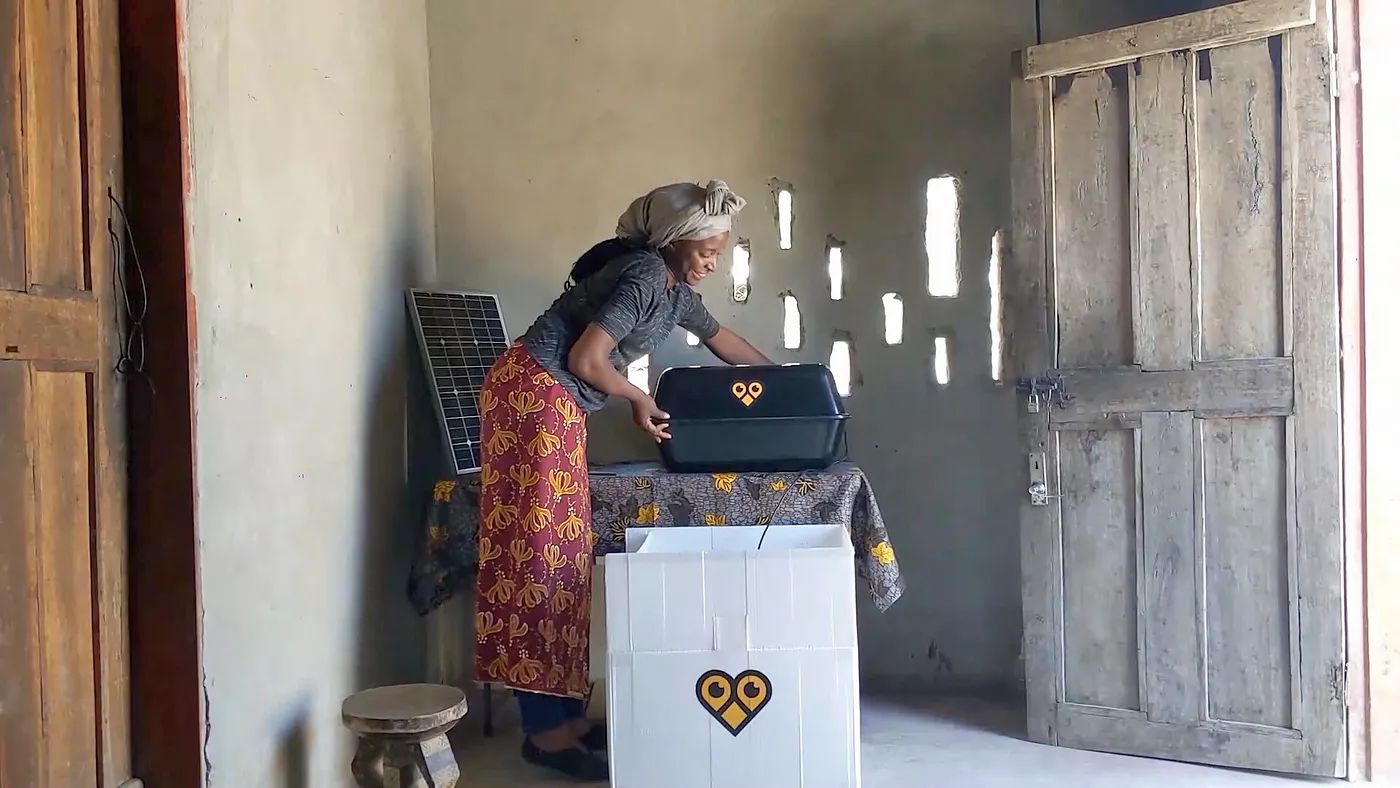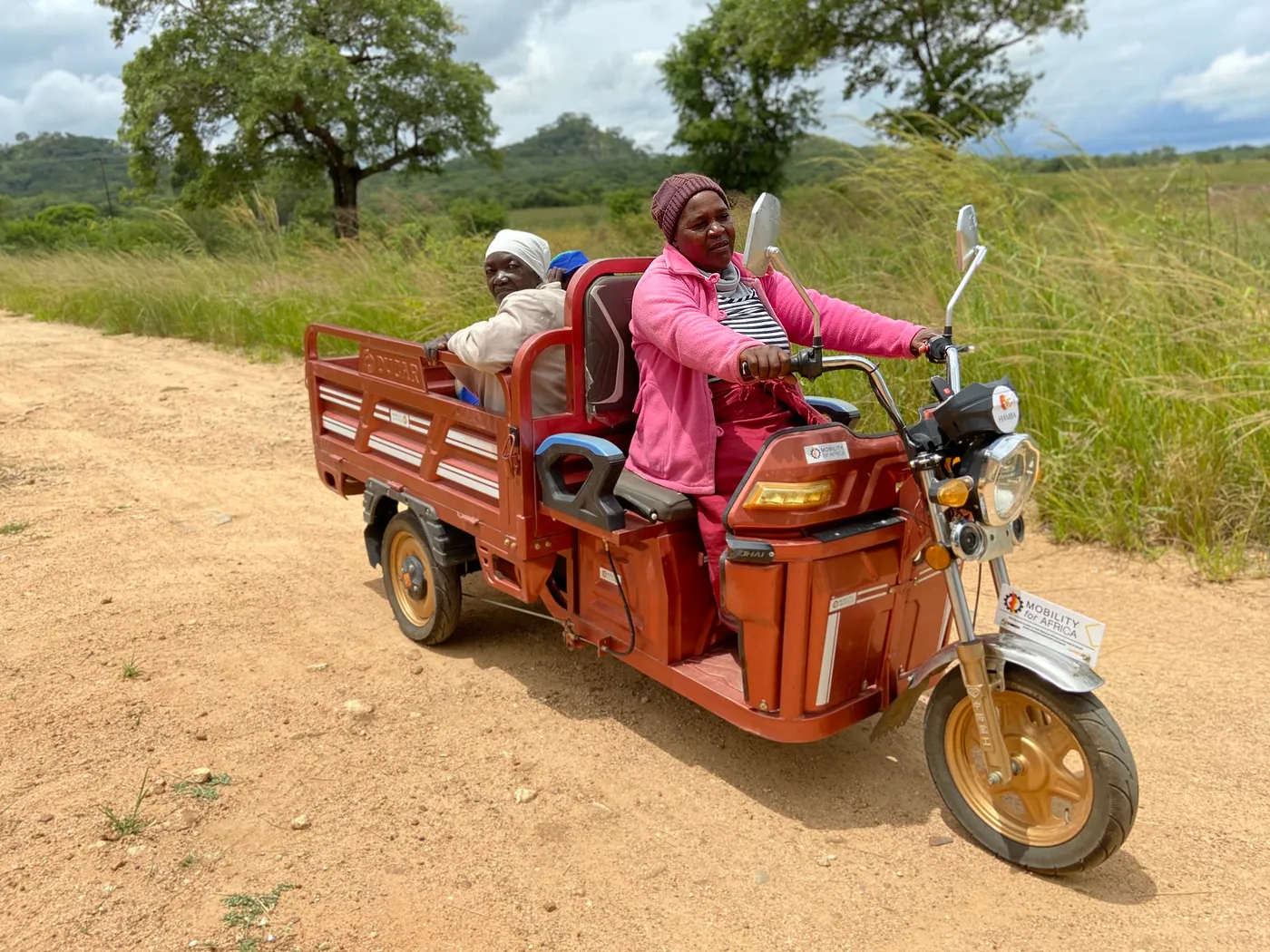Climate-Proofing Agricultural Value Chains
As climate change intensifies environmental degradation and resource scarcity, smallholder farmers urgently need more reliable and diverse income opportunities, and agricultural value chains need climate adaptive solutions at every phase from production to market

By Tracy Dolan, Knowledge Management and Communications for EEP Africa
The negative effects of climate change are increasingly severe, and Sub-Saharan Africa is particularly vulnerable. Sixty percent of the region’s population relies on agriculture for their livelihood. As climate change intensifies environmental degradation and resource scarcity, smallholder farmers urgently need more reliable and diverse income opportunities, and agricultural value chains need climate adaptive solutions at every phase from production to market.
Efforts to enhance access to clean energy are generally considered in terms of climate mitigation, and it is well-documented that renewable energy and energy efficiency technologies reduce CO2 emissions. Climate financing has also focused primarily on mitigation, with less than 10% of tracked financial flows targeting adaptation.
However, clean energy has strong potential to support climate adaptation and resilience. In some cases, the impact on adaptation is even greater than on mitigation. New and emerging technologies in the sector are supporting sustainable farming, reducing pressure on land and water resources, and promoting community resilience.
Identifying climate co-benefits
EEP Africa, an Efficiency for Access Programme Partner, has been supporting early-stage clean energy enterprises for more than a decade. In recent years, we have seen an increasing number of companies apply a value-chain approach to energy access within their business model. This generates higher income for farmers and greater benefits for all parties as compared to a focus on only distributing technology.
Last year, EEP Africa conducted a portfolio analysis on climate adaptation and resilience co-benefits stemming from investments in clean energy solutions. Our analysis showed that off-grid solar systems and productive use appliances have high potential to achieve multiple climate goals.
In order to maximise climate impact, energy developers and funders need to consider the full context of the business model, including long-term supply chain viability and local community needs. As women and girls often bear the brunt of negative climate outcomes, a gender-responsive approach is essential. An inclusive analysis of the local context also reduces the risk of maladaptation by creating a solution at one level that simply shifts the problem elsewhere or locks in suboptimal infrastructure improvements.

Energy solutions along the full value chain
The need for climate adaptive solutions is enormous. About 95% of food grown in Sub Saharan Africa is still rain-fed and up to 50% of produce can be lost during the post-harvest and storage stages. Access to markets is also an obstacle for smallholder farmers, especially women.
The good news is that recent innovations in solar PV, batteries and payment platforms have made off-grid energy solutions a more affordable option in even the poorest communities. This is opening access to a range of productive use appliances that improve income opportunities and quality of life for smallholder farmers.
Many of these appliances are being developed and distributed in collaboration with African farmer associations, women’s cooperatives and other rural community groups. This is helping to ensure that energy solutions effectively address conditions and needs on the ground. By enhancing local capacity, these appliances are also strengthening community resilience when global supply chains are disrupted by natural or man-made disasters.
Solar solutions are promoting agricultural resilience at every phase of the value chain:

Irrigation: Solar water pumps and irrigation systems, such as those developed by SunCulture, can increase crop yields by two to five-fold. They enable farmers to cultivate more land, harvest higher-value crops and grow during the dry season. Drip irrigation and other precision technologies avoid depleting resources and help ensure the stability of the local water supply. Solar water pumps also reduce the burden of fetching water and can provide energy for lights and small appliances, offering the time and opportunity to pursue additional productive activities. In addition, these technologies can help their users withstand droughts and changing water patterns. Some companies, for example, Celfre and Wala, are focusing on portable models that can be purchased by local cooperatives or NGOs for shared use by a group of farmers.
Processing and Storage: Solar-powered mills, incubators, food dryers and cold storage can help enhance crop yields, reduce food loss and increase incomes by extending the shelf life of fresh produce and opening new product opportunities. Better storage facilities enable dairy farmers, for example, to also produce yoghurt and cheese. The best systems provide flexibility to address the different requirements of local produce. Agsol is developing solar mills purpose-built for the African market and OVO Solar’s egg incubators are designed for helping off-grid farmers. Some of the companies deploying cold storage solutions are ENdep, SokoFresh, Taatisolar and Tree-Sea.mals. Community-level processing and storage facilities can offer expanded access through an energy-as-a-service model and improve first-mile distribution.
Transportation: In much of Africa, transportation options are polluting, limited in availability and lack sufficient infrastructure. Less than half of rural Africans live within two kilometres of an all-season road. This is a huge obstacle for rural development and access to markets. Electric vehicles that are optimised for local conditions and supported by solar charging stations can improve health, income opportunities and services in rural communities. Asobo is retrofitting fishing boats on Lake Victoria with electric outboard engines. Mobility for Africa is assembling and deploying three-wheeled electric vehicles customised for rural farmers through a community-based model.

Holistic and risk-tolerant financing is still needed
Emerging technologies are transforming Africa’s agricultural sector to meet the challenges of climate change. With climate demands far outstripping available funding, however, a more holistic approach to financing is urgently needed. Donors and investors should recognise synergies between mitigation and adaptation and direct more resources towards multi-faceted solutions that strengthen resilience.
EEP Africa’s 2020 call for proposals focused on promoting green growth through productive use of energy and circular economy. The 26 grantees awarded financing under that call, along with our ongoing portfolio, are piloting, demonstrating and scaling-up a range of technologies that promote adaptation and resilience.
While grant funding is critical for innovation and testing, more risk-tolerant financing is needed to support climate-proof clean energy concepts. Follow-on debt financing and patient capital can help business models proven at the local level to scale up and deliver the magnitude of impact needed to help achieve national climate commitments.
For the month of October, Efficiency for Access’ ‘Solar Appliances for Our Planet’ campaign is focusing on inclusivity, adaptation and resilience. Learn more here.
***
About the author
Tracy Dolan leads Knowledge Management and Communications for EEP Africa, an early-stage clean energy financing facility hosted by the Nordic Development Fund (NDF) with funding from Austria, Finland and NDF.